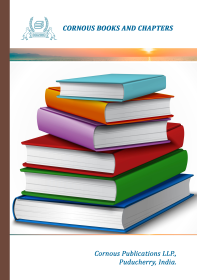

PAID ACCESS | Published on : 15-May-2025 | Pages: 1-10 | Doi : 10.37446/volbook082024/1-10
Pesticides are chemical agents utilized for the prevention and control of a wide spectrum of pests, including insects, rodents, fungi, weeds, and other deleterious organisms. The Green Revolution, which commenced in the 1960s and gained global momentum until the late 1980s, saw an extensive deployment of synthetic pesticides aimed at augmenting agricultural productivity. Although these chemical agents provide significant benefits in terms of crop yields and disease suppression, their utilization engenders considerable risks to both environmental health and public safety. The phenomenon of escalating resistance among insect populations to synthetic pesticides, coupled with rising concerns regarding environmental sustainability, has catalysed a resurgence of interest in botanical insecticides as viable alternatives for pest management. This shift is primarily attributable to the markedly lower ecological footprint of botanical agents, which are derived from plant materials and typically exhibit reduced toxicity towards non-target species, including humans and beneficial organisms, while still delivering effective pest control. Botanical insecticides, extracted from various plant sources, encompass a diverse range of bioactive compounds that can demonstrate insecticidal, repellent, and antifeedant properties. This chapter elucidates the integration of botanical insecticides within integrated pest management (IPM) paradigms, with a particular focus on their application in organic farming and sustainable agricultural practices. Furthermore, it evaluates the efficacy of multiple botanical extracts and essential oils, examining their interactions with beneficial fauna and overall implications for ecosystem health. Consequently, the application of botanical insecticides represents a promising avenue for both research and practical implementation within the framework of sustainable agriculture.
Antifeedant, IPM, Sustainable agriculture, Green pesticides, Azadirachtin, Pyrethrins
Golob, P., & Webley, D. J. (1980). The use of plants and minerals as traditional protectants of stored products (Rep. Trop. Prod. Inst., G-134). Tropical Products Institute.
Gonzales, J. (2020). Effectiveness of Kantutay (Lantana camara Linn.) extract against rice borer. Mindanao Journal of Science and Technology, 18(2), 1–12.
Karunamoorthi, K. (2012). Medicinal and aromatic plants: A major source of green pesticides/risk-reduced pesticides. Medicinal & Aromatic Plants, 1(8), 1–8.
Khan, M. H., Ahmad, N., Rashdi, S. M. M. S., Ismail, M., Rauf, I., & Tofique, M. (2013). Studies on the compatibility of neem oil with predator, Chrysoperla carnea for the management of aphids (Homoptera: Aphididae) in canola (Brassica napus L.). Journal of Cereals and Oilseeds, 4, 85–88.
Okonkwo, C. O., & Ohaeri, O. C. (2018). Efficacy and chemical composition of hexane oil extracts from the leaves of Euphorbia milii and Cassia occidentalis. International Journal of Biochemistry Research & Review, 23(3), 1–11.
Paul, A., Majumder, S., Singh, S., & Divekar, P. A. (2022). Recent trends in botanical pesticides. Indian Farming, 72(03), 22–24.
Philogène, B. J. R., Regnault-Roger, C., & Vincent, C. (2005). Botanicals: Yesterday's and today's promises. In Biopesticides of plant origin (pp. 1–16). Lavoisier Publishing.
Pimentel, D., Moran, M. A., Fast, S., Weber, G., Bukantis, R., Balliet, L., Boveng, P., Cleveland, C., Hindman, S., & Young, M. (1981). Biomass energy from crop and forest residues. Science, 212, 1110–1115.
Shivkumara, K. T., Manjesh, G. N., Roy, S., & Manivel, P. (2019). Botanical insecticides; prospects and way forward in India: A review. Journal of Entomology and Zoology Studies, 7(3), 206–211.